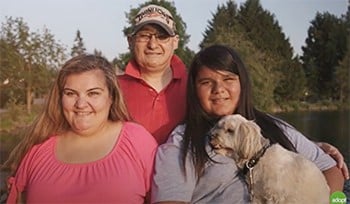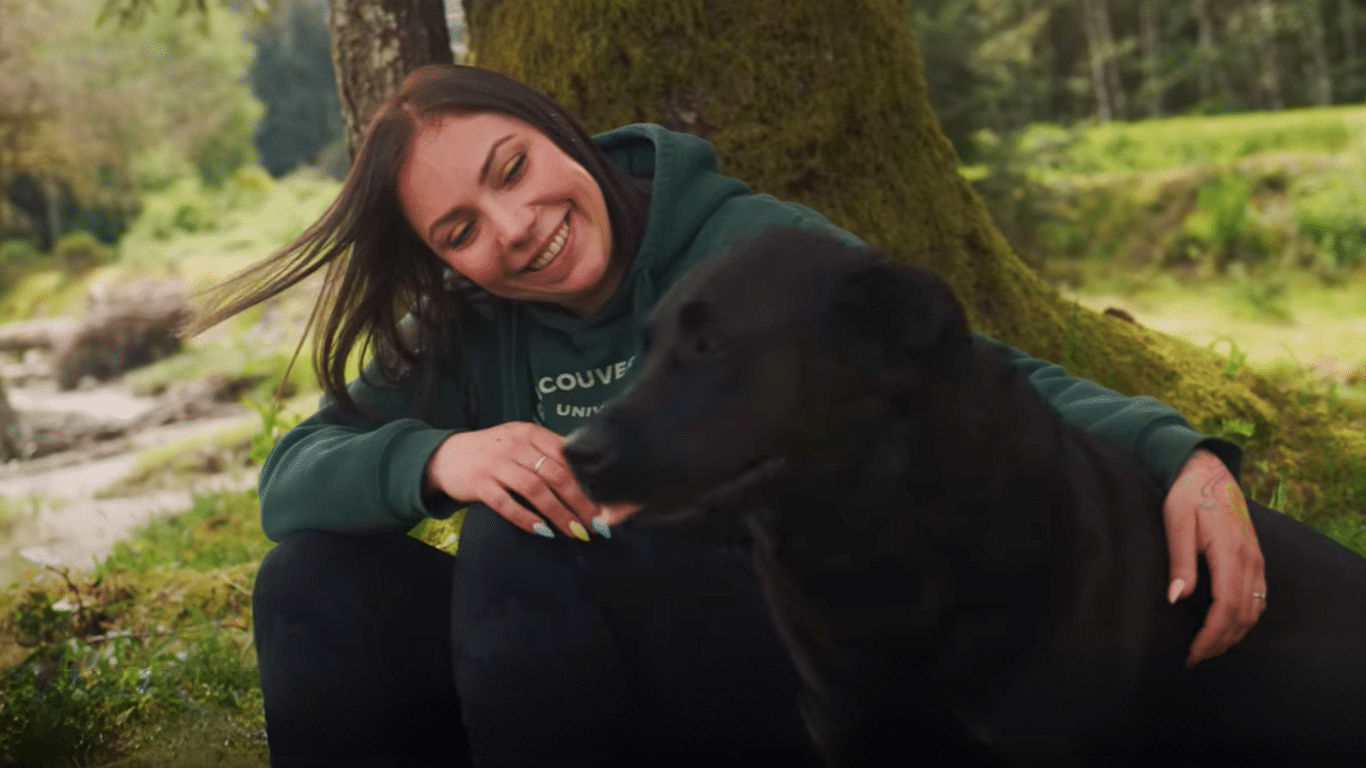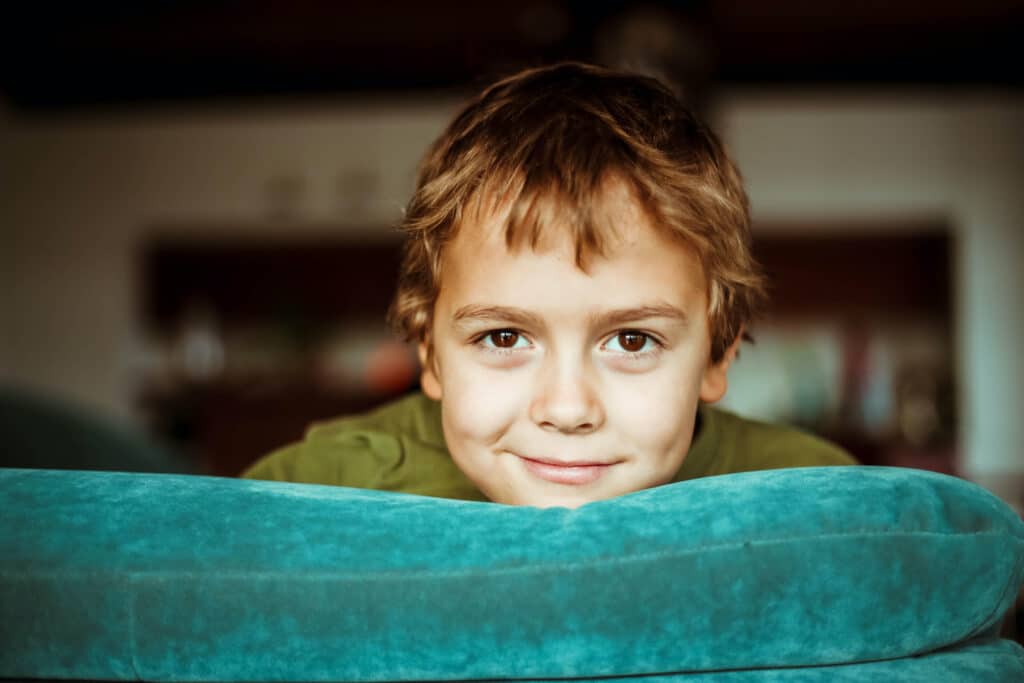Four years ago, Erin McKinney shared her story with the Belonging Network about her experience of adopting N, her second cousin. Their story continues as Erin shares updates about their lives as N transitions into adulthood. Erin’s unwavering support and commitment have nurtured N’s accomplishments, from graduating high school to landing his first job and beginning post-secondary.
Tell us a little bit about your family/adoption story! What made you decide that adoption was right for you?
N is biologically related to me; his birth mom is my auntie on my grandfather’s side through my mother. He was placed in foster care when he was two. At six years old, Wendy’s Wonderful Kids did his family tree, looking for someone in his family to adopt him because he was aging out of the foster home that he was in. [Ed. Note: Two of the Belonging Network’s Permanency Support Specialists are funded by the Dave Thomas Foundation for Adoption through their Wendy’s Wonderful Kids program; one of our Permanency Support Specialists worked with Erin and N.] They [the Permanency Support Specialists] contacted a couple of my family members, and I was the only one with no kids who could take him.
Can you tell us a bit about your experience with the adoption process overall?
N moved in with me in December, just before Christmas, when he was six. He was placed with me under restricted foster care*. At first, they approached me to adopt him, but that didn’t work out right away because I was a single parent and I was living with my older cousin. Then, when N was 13, I adopted him.
There were a lot of supports in place. There was counselling set up for me, and I had to take a parenting course since I had never been a parent before. However, in Aboriginal communities, when you’re an auntie, you’re basically a second parent to your nieces and nephews. So, I didn’t have any live-in children, but I had many nieces and nephews to whom I was the second mom. With MCFD, at the time, they didn’t really understand that. There’s a bit more understanding now of the Aboriginal way and culture, but still, not as much as there could be.
I was frustrated at the time that I had to take these parenting courses, but afterward, I was very glad that I did. I highly recommend anyone having a child to take a parenting course, not just adoptive parents. One valuable lesson I’ve learned is that when a child repeatedly asks for something, it’s common for parents to become frustrated and eventually give in, saying yes to the child’s request. However, I’ve learned that it’s essential to stick to your initial no because the child will remember that one time and that’s enough for them.
What Belonging Network services & and programming have you or your family utilized (now or in the past)? Which has been the most helpful?
There are all kinds of supports that I find helpful. The one that I found the most beneficial was the Timberline camp. N and I were the only family that went from when the camp started to when it ended. The first year the camp was going on, N had only been with me for a couple of months, so I found that it was huge and provided many connections to other adoptive families for myself and N.
N had told me a few times before that it was his favourite camp because everyone was adopted, just like he was. You can’t go anywhere else like that, where kids can feel that sense of belonging with every other kid. Like with school, not everyone’s adopted. The majority of the kids there have their biological mom and dad that they live with.
What are some of the unique joys you’ve experienced in raising an adoptive child?
There have been all kinds of joys. N graduating from high school and going to BCIT. He graduated on time with his class, and he’s the first in my immediate family to go to post-secondary right out of high school. Also, he is getting his driver’s license and his vehicle. I taught him how to save money and set up his bank account. He started working when he was only 13. Now, he’s got a full-time gig learning to be an electrician, and on top of that, he works part-time as a cook at a local golf course. There have been so many joys and things he’s accomplished, and I’m so proud of him.
How do you celebrate your family’s Métis culture?
We go to powwows during the summer. N is also Métis, but there are few Métis things out here. There will sometimes be an event for Louis Riel Day, so we’ll attend and watch the Métis jigging.
We went to Manitoba together when N was about seven or eight because I wanted to take him to Stomperfest, a weekend-long Métis festival. They have a bunch of Métis jiggers and fiddlers, and it’s a competition similar to a powwow, but it’s Métis style. We took the train out to Manitoba. It took two days to get there, but the experience of the two of us going there together was amazing.
Have you encountered any challenges or misconceptions?
One misconception I encounter is when people say that N is lucky that I adopted him. A part of me gets angry when I hear that because it’s really the other way around. I am very lucky that I get to be his mom and that he allows me to be his mom because he could choose not to. Unfortunately, some adoptive kids out there have anger from their birth families, and they just want to fight back. I’m extremely fortunate that N is not like that at all.
He’s not lucky to have been in that situation. He was two years old when MCFD took him away from his birth mom. How is that lucky? That’s the worst thing in the world for a two-year-old to have gone through. Sometimes, I talk to him about the first couple of years that he was with me and the things we did together, and he’s sad because he doesn’t remember everything. I’m sure he’s blocked out stuff to protect himself.
My first advice is to make sure you talk to as many adoptive parents as possible, and I cannot stress that enough. Don’t just talk to one or two; meet up with adoptive parents who are not only at the beginning of their journey but farther along their journey, too.
Erin McKinney
What is one bit of advice you would share with those who are considering adoption or just starting their journey, or just for any parents in general?
My first advice is to make sure you talk to as many adoptive parents as possible, and I cannot stress that enough. Don’t just talk to one or two; meet up with adoptive parents who are not only at the beginning of their journey but farther along their journey, too.
Getting support and having people in your life you can talk to is another big one. My biggest support through my journey was a support group I belonged to with the Simon Fraser Society for Community Living, which is now called Kinsight. It was a group that met once a month, and it had other adoptive parents in the group where I could share my struggles or look for different ways of dealing with them. It’s nice to have someone going through the same thing as you so you don’t feel alone. The feeling of belonging to something is so important. If it weren’t for that, it would have been challenging and, I’m sure, a totally different story. Also, having a group your child belongs to so they can go and talk to other kids who have been adopted so they don’t feel alone.
*Restricted (also known as kinship) homes care for children known or related to the foster parents. The agreement is restricted to a specific child and ends when the child leaves the home or is no longer in care (for example, when they are adopted).





